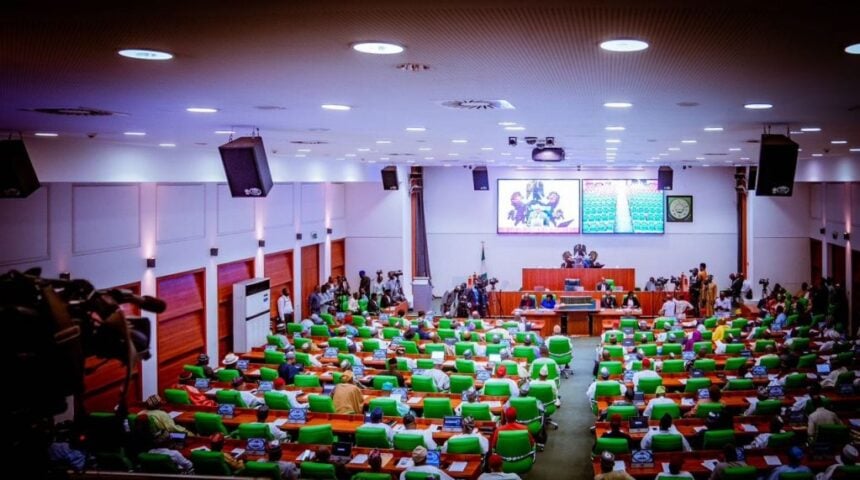The House of Representatives on Tuesday unveiled plans to investigate the implementation of National Health Insurance scheme across the country.
The resolution was passed sequel to the adoption of a motion on matter of urgent public importance sponsored by Hon. Billy Osawaru, who expressed grave concern over the public outcry on the scheme as well as the challenges facing Health Maintenance Organizations (HMOs).
In his lead debate, Hon. Osawaru observed that the scheme which was established in 1999 seeks to “provide access to good healthcare services for Nigerians and protect families from financial hardship due to huge medical bills.
“The House is also aware that the said 1999 NHIS Act was replaced with the Nigeria National Health Insurance Authority Act (NHIA) 2022 which mandates mandatory health insurance for all Nigerians and legal residents, and aim to achieve universal health coverage.
“This Act provides a framework for a comprehensive, accessible, and affordable healthcare system with key objectives to promote, regulate and integrate health insurance schemes, as well as ensuring access to quality healthcare for all.
“The House notes that NHIS contracts with HMOs to provide these healthcare services to beneficiaries who are Federal and State government workers, private sector workers and other Nigerians and these HMOs, in turn, contract with healthcare providers (hospitals, clinics) to offer these services to NHIS beneficiaries.
“The House is informed that despite its potential, the NHIS and HMOs have faced numerous challenges, including low coverage, inadequate funding and inefficient service delivery, as many Nigerians continue to face significant barriers in accessing quality healthcare due to financial constraints and inadequate healthcare infrastructure.
“The House is worried that despite efforts to increase coverage and improve the welfare through quality healthcare delivery, only about 5% of Nigerians are enrolled in the NHIS and the said 5% of Nigerians are facing numerous challenges such as poor-quality services, limited access to medications as beneficiaries complain about out-of-stock medications or lack of quality medications and high incidence of out-of-pocket payments despite being insured.
“The House is also worried that despite the efforts of the government to adequately back the NHIS, its funding is generally considered inadequate and this causes delay in payment to healthcare providers (Hospital/Clinics) by Health Maintenance Organizations (HMOs) and this in turn affects the quality of services rendered to beneficiaries.
“The House is further worried that this delays in payment to healthcare providers by HMOs, the hospitals and clinic, who render these services now choose to play with the health of the citizens which in some cases result to an avoidable death of subscribers; these and many more they have always exhibited such as choosing the kind, quality or rate of drugs they administer to NHIS subscribers, limiting them to a particular doctor or general practitioners even when one requires to see a consultant, limiting the kind of X-rays, scan test to do, and above all, the beneficiaries or subscribers of NHIS will not be covered for some surgeries as low as Cesarean Section (CS) in childbirth and Appendectomy (to remove appendix).
“The House is concerned that if the Challenges of NHIS and HMOs are not addressed, Nigerians who are the beneficiaries will continue to face barriers in accessing quality healthcare services, exacerbating health disparities and force out-of-pocket payment for healthcare services which will increase financial hardship.”
To this end, the House mandated NHIA Director-General/Chief Executive Officer (DG/CEO), to appear and liaise with the House Committee on Healthcare Services to ascertain and examine the impact of the NHIS on healthcare delivery in Nigeria, the challenges and possible solutions to all of them.
The House also mandated the joint Committees on Healthcare Services and Health Institutions to investigate the reasons behind the underperformance of the NHIS in Nigeria, identify areas for improvement and recommend solutions with a view to enhance the effectiveness and efficiency of the NHIS and report back to the House within four weeks.
READ MORE FROM: NIGERIAN TRIBUNE






